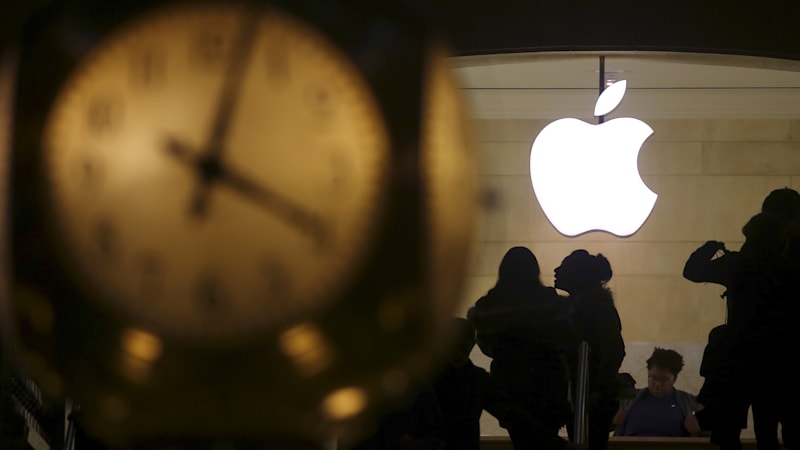Apple’s work on a car has highlighted several potential manufacturing partners capable of building an electric, self-driving car for the technology giant.
The secret project has gained momentum in recent months by adding several former Tesla executives, taking the oversight of Apple’s AI chief and ramping up road tests. Known to Apple as Project Titan, the initiative is attracting intense interest due to its potential to revolutionize the auto industry and supply chains, much like the iPhone did in the smartphone market.
If and when Apple makes a commitment to build a car, it will likely seek multiple partners – including a major one to assemble the vehicle and many others to provide key parts. The following companies – whose representatives declined to comment – are potential candidates:
Foxconn
Foxconn Technology Group already has a close relationship with Apple. For more than a decade, it has been the US company’s largest manufacturing partner, assembling most of the world’s iPhones and a large portion of Macs and iPads from huge complexes employing more than a million people across China.
In October, Foxconn, whose main publicly traded arm Hon Hai Precision Industry Co. is its first electric vehicle chassis and software platform to help car manufacturers bring models to market faster. It also plans to release a solid-state battery by 2024. The Taiwanese company, founded by billionaire Terry Gou, announced in early 2020 a plan to form a joint venture with Fiat Chrysler to develop and manufacture electric vehicles in China, although Foxconn won ‘In January, Foxconn entered into a production agreement with the Chinese EV startup Byton Ltd. aiming to start mass production of its M-Byte model by the first quarter of 2022. It also announced a new venture with China’s Zhejiang Geely Holding Group Co. to provide manufacturing and consulting services.
Magna
Based in Ontario, Canada, Magna is the third largest automotive supplier in the world by sales and has a contract manufacturing facility with years of experience making complete car models for a variety of car brands.
Magna manufactures everything from chassis and car seats to sensors and driver assistance software. Automakers, including BMW AG and Jaguar Land Rover, have leased its Magna Steyr unit and outsourced production to the plant in Graz, Austria. Magna also presents its engineering and manufacturing services to EV startups. Last fall, it was agreed that Fisker Inc. with an EV platform for its Ocean SUV and added self-driving features to the deal in January. In December, Magna put approximately $ 450 million in a joint venture with LG Electronics Inc. of Korea. EV powertrains. It is also expanding its manufacturing footprint in China, the largest EV market, through the ArcFox Alpha-T for Beijing Automotive Group Co. to be built – the first vehicle it has assembled outside of Europe. It also has the benefit of a previous relationship with Apple: the two were in talks to build Apple’s car when the iPhone maker first hit the road about five years ago.
Hyundai or Kia
Hyundai and Kia have garnered the most attention so far this year, thanks in part to Hyundai’s initial confirmation in Korea last month that it was in talks with Apple. But the automaker quickly declined that, reiterating recently that there were no talks about it.
Hyundai and Kia both have plants in the US, in Alabama and Georgia. Their dedicated EV platform delivers a driving range of over 500 kilometers (311 miles) and can charge car batteries up to 80% in 18 minutes. While the two sell EVs derived from existing models, they will start selling vehicles based on the dedicated EV platform from March, helping to reduce costs and improve performance efficiency. They plan to jointly introduce 23 new EV models by 2025 and sell 1 million units worldwide. The major drawback of Hyundai and Kia has been the recent back-and-forth over whether they are developing a car for Apple, a notoriously secretive company. While the two automakers have said there will be no talks, it is possible that discussions will start again if Apple considers them the best possible partners.
Nissan
While considered a distance, Nissan is bringing several elements to the table that could be beneficial to Apple.
Nissan has already developed a joint EV platform with French partner Renault SA, which will be used for its Ariya compact SUV later this year. When asked if the Japanese company would be willing to build cars for Apple, CEO Makoto Uchida said at a revenue press conference that Nissan “has the DNA to do things that others won’t.” The carmaker is in a slump, reporting its largest loss in two decades in fiscal 2019, and could get much-needed revenue from helping Apple develop or manufacture its vehicle. It could also benefit from access to Apple’s technology.After pursuing a strategy of volume at any cost that pays a profit, Nissan needs to attract higher-paying customers, largely with the technology in its cars.
Stellantis
One factor in determining a partner’s suitability for Apple may be the availability of manufacturing capacity. This could indicate European car manufacturers such as Stellantis NV, which has been affected by declining sales in the region and has spare rooms in some factories.
Stellantis is under pressure to find synergies following last month’s creation through the merger of PSA Group and Fiat Chrysler. Chief Executive Officer Carlos Tavares said at a January 19 press conference that Stellantis is open to working with Apple or any other technology company on EVs, “as long as it doesn’t create a technology dependence” that would endanger the automaker’s future. Chairman John Elkann said in 2016 that the auto industry should work with “new industry entrants” such as Google and Apple rather than trying to compete with them.
